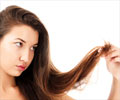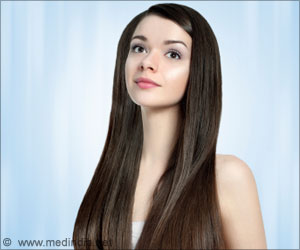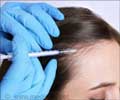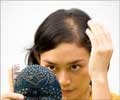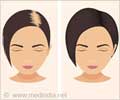Uncombable Hair Syndrome is a rare condition making hair eternally frizzy and wild. Dive into its causes, inheritance, and how to handle it.
- Uncombable Hair Syndrome is a rare congenital disorder making hair dry, frizzy, and impossible to tame
- UHS is believed to be caused by mutations in PADI3, TGM3, and TCHH genes, leading to abnormal hair shafts
- While there's no specific treatment for UHS, maintaining a good hair care routine can help manage the condition
What is Uncombable Hair Syndrome?
Uncombable Hair Syndrome, also known as Pili Trianguli et Canaliculi, Spun-glass hair, or Cheveux Incoiffables, is a rare congenital hair disorder. People affected by this condition have unruly, dry, frizzy hair that cannot be combed flat. It may stand out from the scalp and can't be styled or tamed, even with the most potent hair products. Interestingly, UHS can affect people of any hair color or type (1✔ ✔Trusted SourceUncombable hair syndrome and beyond
Go to source).
Frequency and Causes of Uncombable Hair Syndrome
UHS is incredibly rare, with only about 100 documented cases worldwide. The exact cause is still not completely understood, but it's believed to be related to structural abnormalities in the hair shaft. These abnormalities are most likely the result of mutations in the genes that are responsible for hair formation (2✔ ✔Trusted SourceUncombable hair syndrome
Go to source). More specifically, studies have pointed towards mutations in the PADI3, TGM3, and TCHH genes. These genes produce proteins that are crucial for the structure and function of the hair shafts. The mutations lead to the creation of hair shafts that are triangular in cross-section, rather than round, leading to the characteristic Uncombable hair.
Inheritance of Uncombable Hair Syndrome
Uncombable Hair Syndrome is generally inherited in an autosomal recessive manner. This means that both parents must carry a copy of the mutated gene and pass it to the offspring for the child to be affected. If both parents are carriers of the gene mutation, their children have a 25% chance of being affected by UHS (2✔ ✔Trusted SourceUncombable hair syndrome
Go to source).
Treatment for Uncombable Hair Syndrome
While UHS might seem like a hair-raising problem, it's not associated with any serious health risks and doesn't affect the person's overall health. The condition is more of a cosmetic concern rather than a medical one. Sadly, there's no specific treatment that can change the structure of the hair in UHS. However, individuals with this condition can follow a good hair care routine, including regular moisturizing and conditioning to manage dryness and frizz. It's also suggested to avoid harsh hair treatments, such as perms, relaxers, or dyes, which may further damage the hair (3✔ ✔Trusted SourceSpontaneous Quick Resolution of Uncombable Hair Syndrome-Like Disease
Go to source).
While the condition may seem challenging in childhood, there's a silver lining! The hair often improves and becomes more manageable as the person reaches adolescence and adulthood.
Embracing the Uncombable: A Lesson from UHS
In a society often fixated on appearance, it's important to remember that our differences make us unique, and conditions like Uncombable Hair Syndrome remind us of that. While having UHS might seem challenging, it presents an opportunity to embrace what sets us apart and to love ourselves, 'Uncombable' hair and all.Uncombable Hair Syndrome teaches us that it's okay if our hair doesn't conform to societal norms of beauty. After all, it's these quirks and peculiarities that make us who we are!
References:
- Uncombable hair syndrome and beyond - (https://pubmed.ncbi.nlm.nih.gov/35751533/)
- Uncombable hair syndrome - (https://pubmed.ncbi.nlm.nih.gov/19700017/)
- Spontaneous Quick Resolution of Uncombable Hair Syndrome-Like Disease - (https://pubmed.ncbi.nlm.nih.gov/31049339/)


